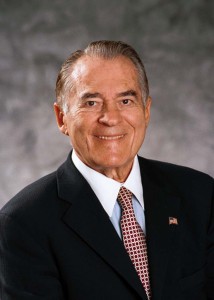My interview with Justice Ruth Bader Ginsburg is a chapter in “The Counselors: Conversations with 18 Courageous Women Who Have Changed the World.”
Here’s another conversation with her:
Justice Ginsburg Says to Think About What’s Changed!
Melissa Fitzgerald: A West Wing Life
You may remember the West Wing episode where Carol, CJ Cregg’s assistant, announces that she’s been so transformed by working with President Jed Bartlet’s dream team over his two terms in office that she’s dedicating the next phase of her career to a non-profit that helps veterans?
Carol goes on to becomes Senior Director at Justice for Vets in Washington, D.C., and Carol’s former “work family” from the White House joins in to support fundraising efforts and to film public service announcements for the important mission of this organization–even including President Bartlet and her former supervisor, CJ (who couldn’t be prouder).
At Justice for Vets, Carol meets inspiring veterans. She works to help them and their families address issues that result in stronger people, families and communities….
While it is true that a West Wing job often provides opportunities for a hard-working young person… And while it is true that the woman who is currently the Senior Director at Justice for Vets was CJ’s assistant in the Bartlet Administration… At some point, from time to time, we all must face the unpleasant reality that there never really was an actual Bartlet Administration. West Wing is a fictional television series.
It is worth noting that the further adventures of “Carol,” however–with her life changed by the West Wing and ready to make her own way in the world–would be the stuff of great tv spin-offs, like Rhoda or Better Call Saul. Yet the real-life journey of the woman who played her is at least as interesting as any fiction Hollywood could create.
Melissa Fitzgerald, the Senior Director of Justice for Vets, used to play the role of Carol on WW. Melissa brings her considerable intelligence, charm, and star power to a public policy agenda for veterans that requires attention urgently. And her real-life friends from the t.v. show, including award-winning actors Alison Janney, Bradley Whitford and Martin Sheen, as well as this year’s Oscar-winning Spotlight writer Josh Singer, have been on hand to help with fundraising and PSA’s.
A long-time friend of hers, businessman and attorney Gregg Melinson, fills out the picture on Melissa’s career path: “Her friends and family used to say the purpose of Melissa’s acting work was to fund her public interest passion. She worked generously with non-profits, and she founded a mentoring organization. She’s been an international Goodwill Ambassador and produced a documentary on veterans returning home. So it was a natural transition for her to want to create opportunities for veterans with Justice for Vets. Melissa is precisely the effective communicator and fierce advocate veterans need.”
Melissa expands on the needs addressed by Justice for Vets: “Our veterans return home, for the most part, only strengthened by their military experience. But for some, the path has obstacles such as PTSD or a substance abuse disorder… Justice for Vets helps veterans through what might otherwise be a crisis or incarceration by working with them in Veterans Treatments Courts. There are now about two hundred VTCs around the country… We could use ten times more.”
A Veterans Treatment Court provides an alternative path when a veteran becomes involved with the criminal justice system. A coordinated team comprised of the Department of Veteran Affairs, volunteer veteran mentors, and the traditional professionals utilized in drug courts and mental health courts works with a judge to prevent a veteran’s unemployment, homelessness, and arrest, while promoting reintegration to civilian life.
Melissa continues, “When we use words like ‘Thank you for your service,’ we have to mean it, by connecting our words with our actions, as a nation. Veterans have earned the opportunity for treatment and restoration.” She comments that the strict structure and scheduling of VTCs has proven effective with veterans accustomed to military procedures; also, many veterans rise to the challenge when asked to fulfill a commitment.
In a country that seems to become more divisive and partisan in its politics with each passing year, Melissa’s admirable mission with Justice for Vets is one that people on both sides of the aisle can get behind. More than ten thousand veterans are receiving life-changing treatment in a Veterans Treatment Court. She reports with a smile, “Veterans emerge from these programs wanting to hold a job, go back to school, and be a pillar in their families.”
West Wing has an episode where staffer Toby Ziegler is asked to identify a homeless man* who died on the street, since Toby’s business card was found in the pocket of the man’s coat. (Toby had donated the coat to charity with a card in the pocket.) When Toby learns the homeless man was a Korean War veteran, he is moved to use his influence to get the man buried at Arlington National Cemetery with a full military ceremony. The tale resonates with respect for the contributions of veterans to this country and no doubt would have made an impression on CJ’s assistant Carol when she learned of it….
Justice for Vets is a 501(c)(3). To learn more and get involved: JusticeForVets.org.
*Footnote: The West Wing episode “In Excelsis Deo” is season 1, episode 10. It’s currently on Netflix. Creator Aaron Sorkin won a writing Emmy for the episode; Richard Schiff, the actor who played Toby Ziegler, also won an Emmy. The episode is poignant and is guaranteed to (a) make you want to drop what you’re doing and watch five more WW episodes; and (b) confirm your belief that it is our duty to do all we can for veterans.
Elizabeth Vrato is a writer and attorney based in Chicago and author of “The Counselors: Conversations with 18 Courageous Women Who Have Changed The World” (Foreword by Bill Clinton). A new edition e-book is now available on Amazon and other online outlets: www.thecounselorsbook.com
#Veterans
#PTSD
#PTSDAwarenessMonth
#JusticeForVets
#WomenLeaders
#ChangingTheWorld
Year of the Monkey, Meet Speed Mentoring: Round Two
A new year inspires new endeavors and fresh challenges. It might move you to “Lean In,” as well as to look inward in order to re-imagine or recalibrate your career path….
The new year can compel a long list of to-do’s and Resolutions! Or, some people dedicate their year to an over-arching theme (e.g., “Express Gratitude,” “My Year of YES,” “In 2016, I’m making some green”)….
It might even take until the second full moon after the winter solstice, otherwise known as Chinese New Year (this year, February 8th), to get your plans in place.
However, and whenever, you choose to realize the potential of what lies ahead, learning the best practices of friends and professional colleagues will certainly not hurt — and it infuses your decisions with practical wisdom.
I call this “speed mentoring” — any advice you can pick up along the way that makes things easier/ better for you on your path….
In the spaces before or after a meeting, in the coffee room, at a happy hour, during the chats on personal hobbies and families, or on social media, try throwing some of these questions in the mix:
–What are you learning now that is new or different?
–Who’s given you an opportunity that changed things for you?
–Who’ve you networked with recently who you think might be helpful in your career plans?
–If you could have a “do-over” on some part of your educational or professional path, what would it be?
–What’s something you wish everyone knew about you?
–What motivates you the most? Has it changed?
–What is the best piece of advice you’ve ever been given, of any kind?
HAPPY NEW YEAR!
Elizabeth is the author of mentoring stories from The First Women to ______! “The Counselors: Conversations with 18 Courageous Women Who Have Changed the World” (Foreword by Bill Clinton). A new edition e-book is now available on Amazon.com and other online outlets. www.thecounselorsbook.com
Holiday Fun, Meet Speed Mentoring: Round One
Social events during the Holiday Season allow us to reconnect with friends and family, touch base with acquaintances, and meet new people….
Get-togethers with friends, client dinners, charity events, family buffets, company parties….
Sports, “Star Wars,” and Trump may take up a good bit of the chatting time….
But consider taking advantage of any opportunities for candid conversation in order to gather information and advice from others that you can think on and put in the mix for yourself in the New Year….
“Mentoring” includes any time someone can share with you something that might make things easier/better for you on your path….
So pass the egg nog, shake it to the Electric Slide, and ask some people:
-How did you come to your current job?
-What part of your job do you like most?
-What sets you apart from peers and helps you to be successful?
-What do you think are the most important things for shaping a successful career?
-What’s the best professional feedback you ever received?
-What’s something you would do differently in your career if you could?
-Do you have any tips on work/life balance for me?
HAPPY HOLIDAYS!
To be continued…
Elizabeth is the author of a book of mentoring stories, “The Counselors: Conversations with 18 Courageous Women Who Have Changed the World” (Foreword by Bill Clinton). A new edition e-book is for sale now on Amazon and other online outlets.
Lawyer, Mentor, Friend: Jerome J. Shestack
It’s time to #thankyourmentor.
I grew up in a law firm. My mother worked there part-time while completing her college degree. Thanks to my mother’s pitch to anyone who would listen that her daughter was a “future lawyer,” one of the firm’s most accomplished lawyers took an interest in mentoring me. That relationship changed my life. I became a lawyer because of Jerry Shestack. He passed away four years ago this month.
Jerry Shestack appeared repeatedly on lists like “100 Most Influential American Lawyers.” He served as president of the American Bar Association. He was invited by JFK to be a charter participant of the Lawyers’ Committee for Civil Rights in 1963. He was the UN Ambassador to the Human Rights Commission for President Carter. He chaired the Committee on Conscience for the Holocaust Museum in Washington, D.C. He loved movies, and he was a consultant for “The Young Philadelphians” starring Paul Newman as a Philadelphia lawyer. His son, Jon, became a movie producer.
A person as busy as Jerry could be forgiven for not having much time to help others along. Jerry made time. Jerry taught me by instruction and by example. I received draft documents covered in red ink with his notes and careful word choices. And I was able to sit around a table with a case team at a meeting and learn from watching him do his job–the way he analyzed an issue or spoke with an adversary. I think about Jerry all the time: things he said, what I think he would say, things he did, how I think he would handle something facing me now.
When I expressed gratitude to Jerry for the difference he made in my life, he suggested I write a book about mentoring. As our discussions on that book project advanced, he suggested interviewing women who had received the American Bar Association‘s award for trail-blazing women. This meant interviewing Justices Sandra Day O’Connor and Ruth Bader Ginsburg and Attorney General Janet Reno, among others. I dug into the project with gusto. The result was my book The Counselors: Conversations with 18 Courageous Women Who Have Changed the World, which has just been released in a new edition as an e-book (www.thecounselorsbook.com).
Jerry and I appeared on C-SPAN’s “Book-TV” to promote The Counselors. Jerry told the audience that we stand on the shoulders of those who come before us. He named the first female professor at Harvard Law School, Soia Mentschikoff, as an important mentor of his. He named past ABA president Bernie Segal as another.
Jerry said his mentors had increased and enhanced his achievements in life. He said society is complex. Being mentored gives you a sense of belonging. He said life has a lot of obstacles, and a mentor can help to give you the courage to face them. He said mentors provide vision and wisdom in order to further your reach and expand your horizons.
Jerry likewise told the C-SPAN audience what he found appealing about mentoring others. He said he liked the idea of giving back something when you have gained from society. He said passing the torch is fulfilling. And he said that it is a mark of leadership when you are willing to share leadership and bring others along.
I was at Jerry’s bedside a few hours before he passed away on August 18, 2011, and I served as one of his pallbearers in a raging rainstorm that stripped away everything of those there (hairstyles, make-up, ironed clothes, polished shoes) except a raw, gut-wrenching grief that lingers.
Then-Secretary of State Hillary Rodham Clinton issued a statement mourning Jerry, noting “He was a committed public servant and a dogged defender of human rights.” She stated, “He was unwavering in his commitment to the highest of American values and international human rights standards. Jerry was an effective advocate for the causes–and people–he cared about because he had a rare mix of wonderful qualities: optimism, resilience, humor, a thick skin, and a way of making everyone feel at ease.”
Jerry’s son, Jon, delivered a moving eulogy at the funeral. Jon asked, “Who is ever going to love me like he loved me?” And Jon reasoned with us and our grief: “We all know it’s not a tragedy when an old man dies, particularly a man like Jerry, who had accomplishments and friendships to last two lifetimes. But it is still very, very sad.” He encouraged us to move from sadness to gratitude for having had Jerry in our lives.
Jon shared some things about his dad that never appeared on a resume: (a) Jerry was always game for an epic pillow fight that could only be resolved by ice cream; (b) Jerry claimed to know judo; (c) Jerry never fully stopped being a Hebrew School teacher, an Eagle Scout, or a big brother; and (d) Jerry would occasionally, if he saw someone being arrested, get out of the car, identify himself as a lawyer and just stand there, making sure the guy was being treated according to the law.
Jon shared some lines from a poem, When I Think About Those Who Are Truly Great, by Stephen Spender, that remind him of his father: “The names of those who in their lives fought for life; Who wore at their hearts the fire’s center; Born of the sun they traveled a short while towards the sun; And left the vivid air signed with their honor.”
Jerry is survived by his wife Marciarose, his children Jon and Jennifer, and five grandchildren.
No fewer than fifty people will tell you that Jerry Shestack mentored them, made them a better professional, made them his friend, and changed their life.
(To carry on his legacy, the Lawyers’ Committee for Civil Rights has created the Jerry Shestack Justice Fellowship. This two-year fellowship pairs a young lawyer with leaders of the civil rights bar to participate in cases of national significance. To learn more or to make a donation, visit www.lawyerscommittee.org or call (202) 662-8325.)
#thankyourmentor
It’s A New World
“Nothing is more powerful than an idea whose time has come.”
Victor Hugo
Nowhere is this more evident than in the movement for women in leadership right now.
Consider the following sampling of events in our culture since the start of this year:
Elle magazine has convened a board of women with the intention of improving the lives of women over the next thirty years.
Viola Davis won a SAG award for Outstanding Female Actor in a Drama for her portrayal of Ivy League law professor Annalise Keating in the delicious thriller, “How to Get Away with Murder” (produced by Shonda Rhimes). The award means two women of color are succeeding in mainstream television.
The New York Times published an article about Justice Ruth Bader Ginsburg as a jurist and pop culture icon, sometimes referred to as the “Notorious RBG.” Justice RBG was then the cover photo for Time magazine’s “Most Influential” issue. And Natalie Portman is slated to play her in a biopic movie.
Mika Brzezinski is in the midst of a national conference tour related to her best-selling book, Knowing Your Value. The tour features daylong events for building community among women, coaching women to make a plan for success, and providing opportunities for networking.
Patricia Arquette, while accepting an Oscar for her role in “Boyhood,” made an impassioned plea for wage equality for women. Meryl Streep and Jennifer Lopez—seated next to each other in the audience—whooped, hollered and waved their arms in support. And in the fall, Streep stars in the film “Suffragette.”
The No Ceilings project has identified the progress of girls and women around the world over the past twenty years, as well as areas where progress is needed for girls and women in the future.
During the NBA All-Star weekend, players did PSAs in partnership with Sheryl Sandberg and her seminal book, urging us all to “Lean In” and join the fight for women’s equality.
Judd Apatow, while pitching his raunchy comedy, “Trainwreck,” has discussed non-stranger rape in the context of the Bill Cosby allegations with a thoughtful, feminist perspective.
When I was an attorney with the NOW Legal Defense Fund in New York City (since renamed “Legal Momentum”), because of the subtext and insidiousness often involved in gender issues, we used to say that an anecdote may be an anecdote, but several anecdotes become data.
So it is with the list above. Any one or two of these things certainly could have happened five years ago or ten years ago, but all of them in the span of little more than a half year are indicative of us all having arrived to a different place. There’s a new normal.
To be continued…
———-
Trailblazing women, past, present & future (including Justice Ruth Bader Ginsburg) are featured in The Counselors: Conversations with 18 Courageous Women Who Have Changed the World.
Taking Care of Business… Old and New

Graduation season is the perfect time to reflect on how the world for American women has been changing both slowly and quickly, both dramatically and not at all . . . . Consider this recent sampling:
2009: The very first bill President Obama signs into law, in January 2009, is the Lily Ledbetter Fair-Pay Act, restoring the protection against pay discrimination that the Supreme Court had struck down in Ledbetter v. Goodyear Tire & Rubber Co., 510 U.S. 618 (2007). But the wage gap persists.
2012: With Sarah Palin, the Republican Party joins the Democratic Party in nominating a woman for the first time to the second highest office in the land.
January 2014: In his State of the Union address, President Obama calls the gender wage gap “wrong” and an “embarrassment,” adding “It’s time to do away with workplace policies that belong in a ‘Mad Men’ episode.”
June 2014: The White House hosts a Summit on Working Families, to set an agenda for a 21st century workplace that supports working families (e.g., national paid family leave benefits).
August 2014: As part of a U.S.-Africa summit, First Lady Michelle Obama and Laura Bush host a symposium of first spouses from nearly thirty countries, where they promote education and opportunity for African women and girls. Mrs. Bush tells the crowd, “Only countries where all people are involved can be successful.”
December 2014: The World Economic Forum reports the United States ranks 65th in the world on the issue of equal pay, with American women making approximately 66% of what a man makes for doing the same job.
Spring 2015: Three women serve on the U.S. Supreme Court (30%); twenty women serve in the U.S. Senate (20%); and eighty-four women serve in the House of Representatives (19%).
Spring 2015: High-profile female CEO’s include Marissa Mayer at Yahoo, Meg Whitman at Hewlett-Packard, and GM’s first female CEO, Mary Barra. Yet, fewer than thirty of the Fortune 500 companies have a woman as their CEO. And women’s representation in Fortune 500 leadership positions (Executive Officer positions, Board seats) has stagnated.
WHAT DOES THIS MEAN TO YOU?
The Counselors can help. Here’s why: It is truer than ever that the story of women in American culture is a vibrant and changing story. The energy and dedication of a generation of women has transformed the world. The future depends on what we do with what they have done for us. We’re not there yet, and we have unfinished business. As we continue to ascend, assimilate, and integrate, it is now more important than ever to learn the stories of women who break new paths, open doors for others, and crash through glass ceilings. Their stories–and their example–give us hope and confidence.
President Clinton authored the foreword of The Counselors shortly before leaving office. Since then, President Clinton has continued to play a lead role on the world stage, with the progressive programs and goals of his family’s foundation, his library, and the Clinton Global Initiative. He also became a grandfather (of a little girl) and has campaigned vigorously for fellow Democrats who share his values.
In 1987, before she attained recognition by her first name alone, Hillary Rodham Clinton was working to help women. She served as the first chair of the ABA Commission on Women in the Profession. In that capacity, she launched the Brent Award, whose recipients are profiled in The Counselors.
Clinton had just been elected as the first female U.S. Senator from New York when the first edition of The Counselors was released. She next served for four years as our country’s third female Secretary of State. At the time of the release of the new edition of the book in Spring 2015, she is the frontrunner to be elected President of the United States.
To be continued. . . .










